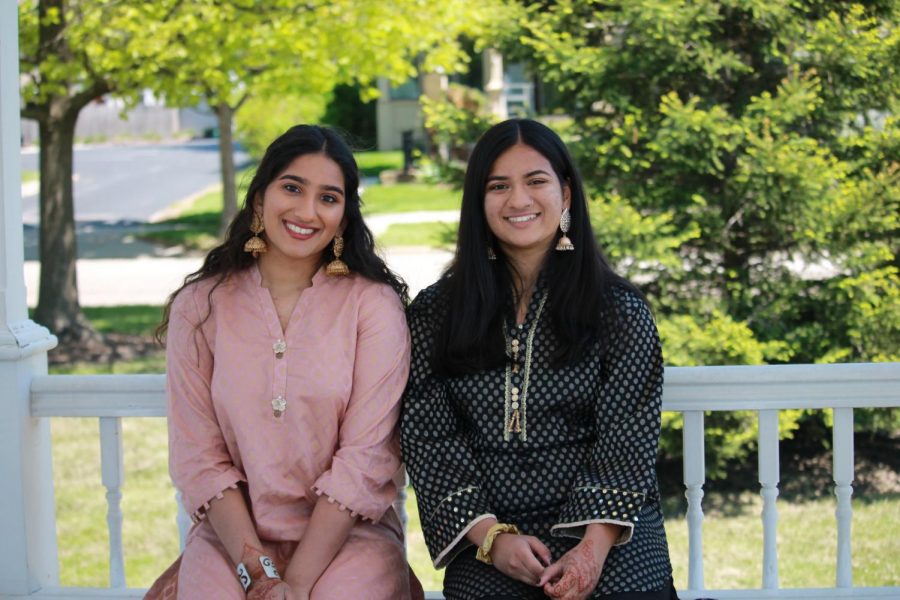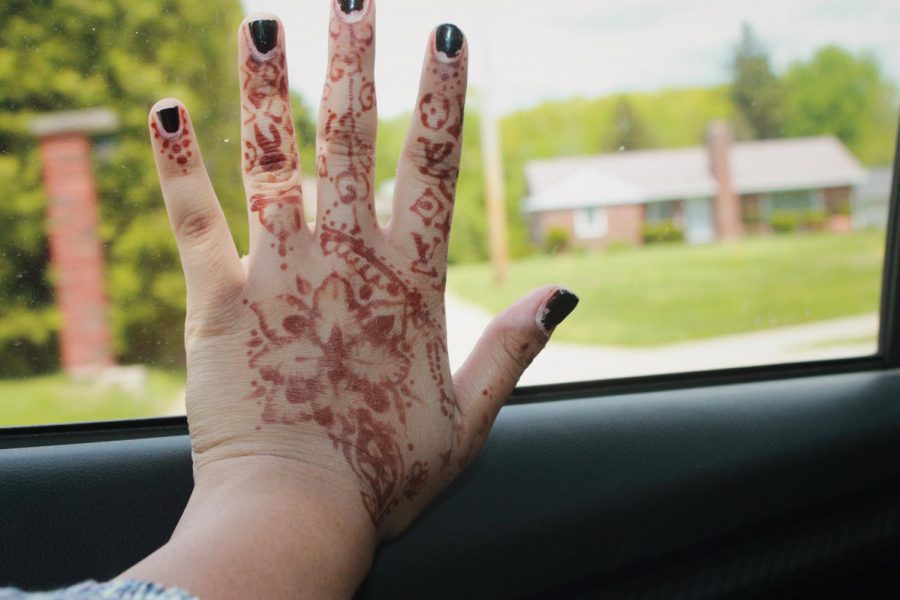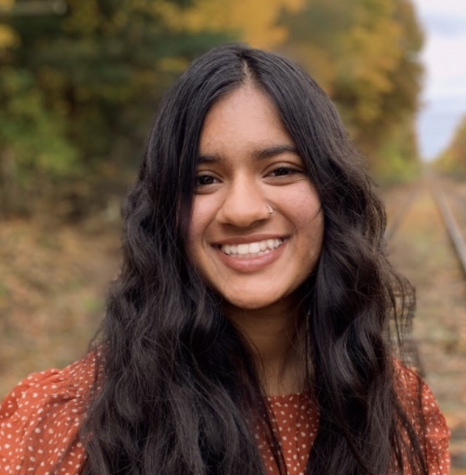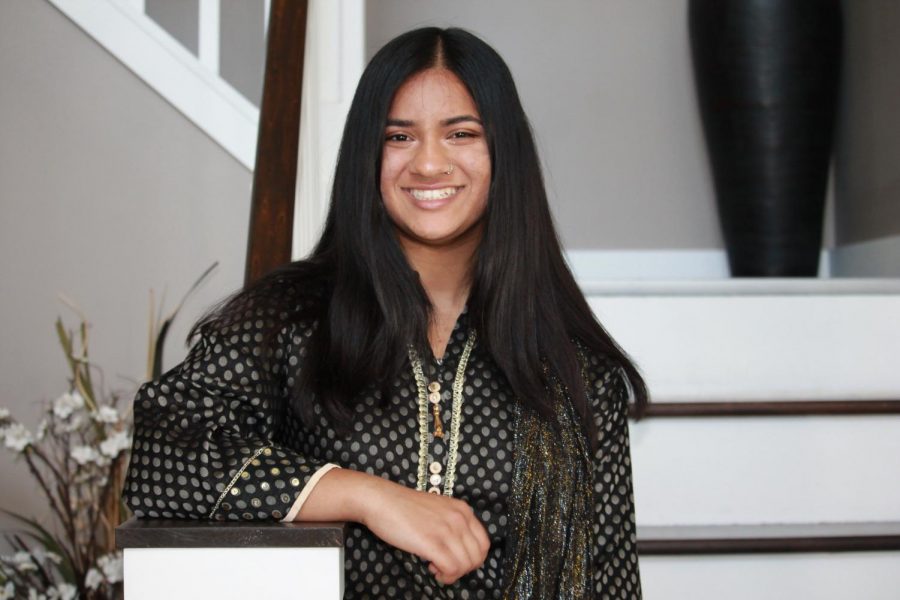Festival of breaking the fast
Rida Shaikh shares her personal story of celebrating Ramadan through the month of April
Freshman Rida Shaikh celebrates Eid May 13. Muslims dress respectfully when they go to worship in salwars.
Ramadan — the most sacred month of the Islamic year with a time of spiritual reflection, sacrifice and self-control — a holiday in which I wholeheartedly celebrate.
During Ramadan, Muslims who practice Islam, fast for a month, meaning that they give up the survival need of food and water and eat strictly only at sunrise and sunset. Yes, it can be very demanding at times, especially if you’re in school. During lunch, sometimes I feel drained and it’s hard to look at the delicious servings that the kids around me devour. But, I know that it will all be worth it in the end, knowing Allah (our God), will be very proud of me and that I will receive many countless blessings.
The moment when we all sit together at the family dinner table and wait a few minutes to eat, the time just feels the longest. The “short” time feels like an eternity to me. We start by reciting our opening prayer and reading some dua’s (wishes), and after, eat a Khajur/date. Then, the huge feast begins with an appetizer of crunchy spring rolls on the right and to the long left, a dish of karahi chicken and a cup of rooh-afza (concentrated syrup diluted with milk/water).
The joy just emerges from my face as the first bite hits. But, we don’t eat for long, because we do a prayer after our many appetizers. After the prayer, we continue eating and eating. It feels very rewarding to know I did not cheat and went through the day strongly.
After the holy month of fasting comes a joyous day called Eid or Eid al-Fitr, where we get to bask in the glory of the day with food, a few gifts and early morning prayers to treat all of us for the hard work we put in. Eid is also called the “Festival of Breaking the Fast.” Muslims all across the globe pay their respects to Allah by praying together at their nearby Masjid (place to worship).

Usually, the day of Eid falls on a school day, and it becomes really hard to wake up, do prayers, and then go back to school. What I really dislike about that is some teachers are not thoroughly educated about this wide topic and mark us an unexcused absence. It’s not really their fault; it’s the fact that the holiday is not commonly talked about. You can always hear the lively talk about Christmas coming up, but never the chit chat about our Ramadan and Eid.
Another thing that upsets me is how there is a national week off for Christmas break but not one day off for us Muslims who are fasting and celebrating Eid. We need to step up and share our differences by letting everyone be included by introducing this holiday to the school and the whole city.
There are not any banners or lights up during our holiday around the city but you are guaranteed to see them during Christmas, Easter or St. Patrick’s Day. My dad has an idea to decorate our house in gold lights to restore the feeling of celebration. Hopefully many people around us decide to do the same to share the feeling of Eid’s joy. Our family has decorated every year, and mostly around the fireplace. We hang lights up, write “happy Eid” on chalkboards, and place gold vases and decorations too.
I think with small changes every day, we can get to a point where we all feel included where we live. These changes can range from more education on Islam, groups to gather Muslim students, to a calendar with 30 days of fasting.
During Eid, my family and I dress up in ornamented Salwar Kameez (cultured dress) in bright, vibrant colors. We try our best to look very presentable when entering the Masjid to attend and do prayers. After the meaningful and lengthy prayers, we usually eat together near the Masjid with desserts and savory and after, visit friends for an “after party” to exchange gifts and feast, which is really fun-loving.
People may think that all this fasting would make us end up losing weight, but actually, it’s the complete opposite. Most of us gain weight because we end up eating more calories in the two meals because you need to have energy throughout the entire day. Also, I don’t have enough physical exercise, because doing small things such as walking upstairs really tires you out and it makes you lose energy resulting in hunger.

Another factor that results in weight gain is the water intake. Personally, I find it really hard to incorporate the recommended eight glasses of water a day in only two meals. On a regular day, I barely drink enough water.
Fasting has made me stop running track because it would be really hard to exercise without water and on top of that, lose tons of energy. So far, I have had to skip two days of fasting to become a certified scuba diver, because while diving, you swallow a lot of water and it’s hard to avoid that. It is hard to balance things sometimes with fasting, but in the end, it will be all worth it.
All in all, Ramadan is a beautiful process of self and spiritual reflection, and brings you closer to God through trust and respect. I hope you have learned something about Ramadan or about Eid while reading and how my Family and I celebrate. BRB, I’m now going to eat some samosas (fried triangular pastry) and mithai (ethnic sweets)! See ya!
Your donation will support the student journalists of Streetsboro High School. Your contribution will allow us to purchase equipment and cover our annual website hosting costs.



